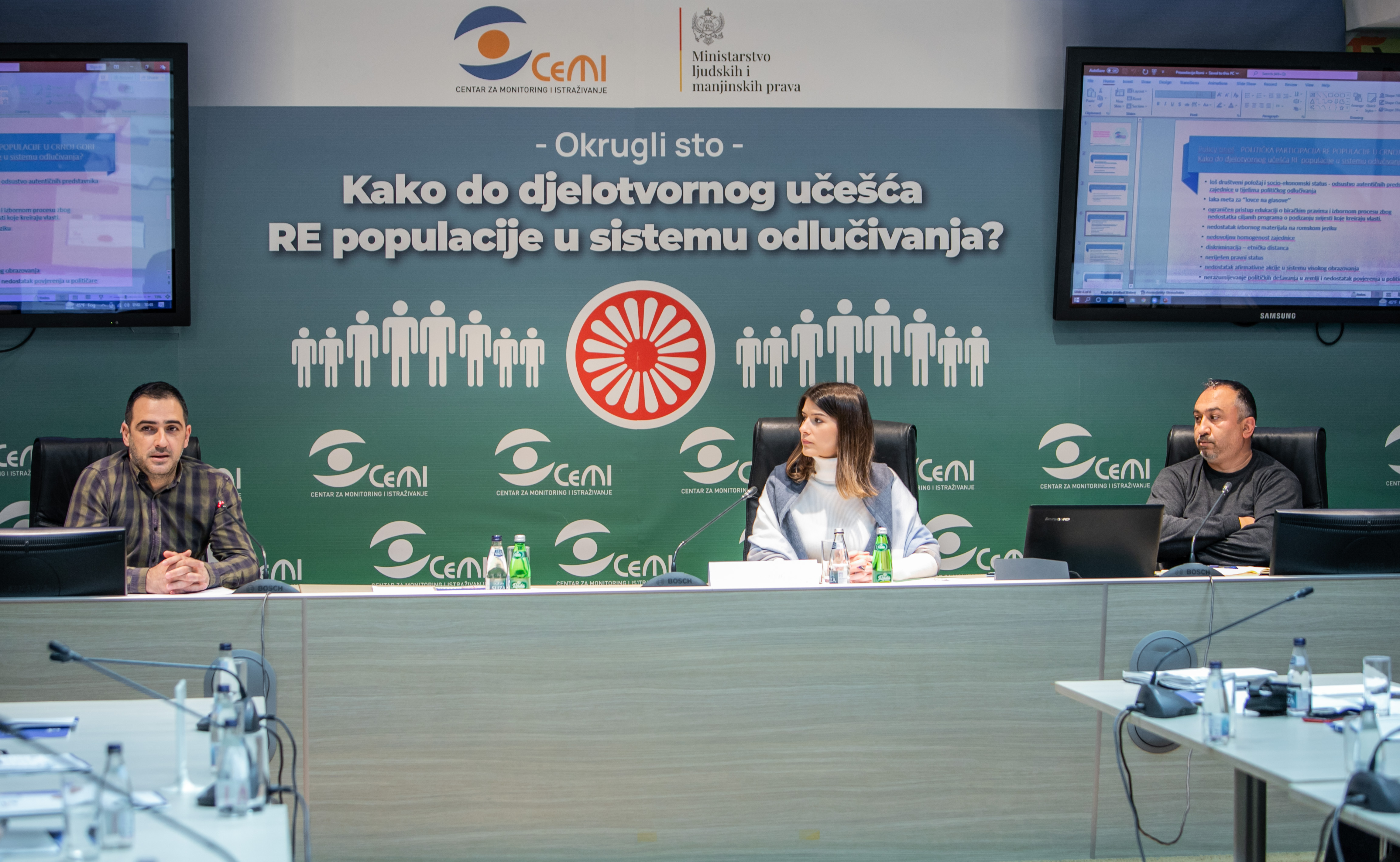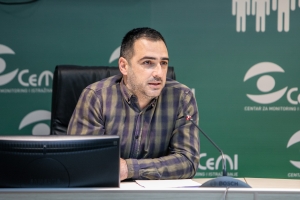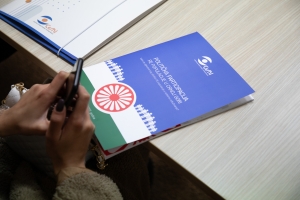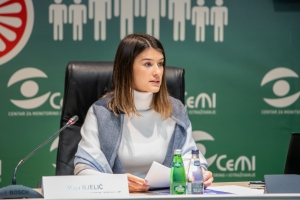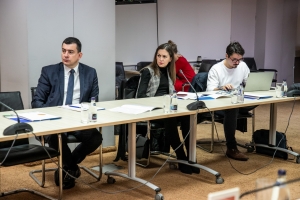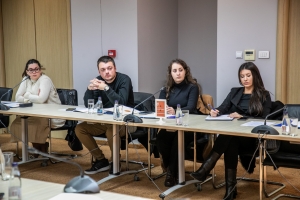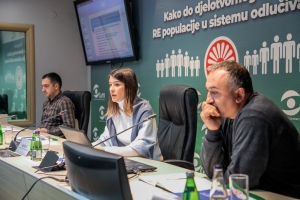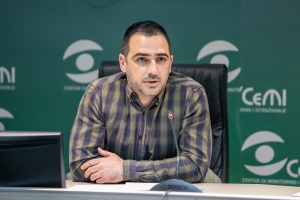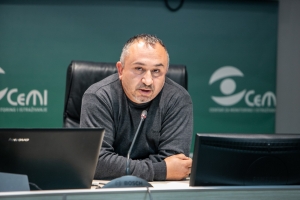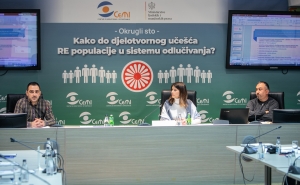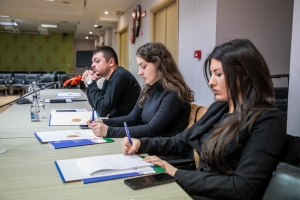The real political will for the inclusion of Roma and Egyptians (RE) in the decision-making system essentially does not exist, so the members of this community remain deprived of authentic representation in the Montenegrin Parliament, it was announced at the round table of the Center for Monitoring and Research (CeMI).
The round table "How to effective participation of the RE population in the decision-making system?" is one of the activities within the project "On the way to the inclusion of the RE population in the decision-making system in Montenegro", which is implemented by CeMI with the financial support from the Ministry of Human and Minority Rights of Montenegro.
CeMI's project coordinator, Maja Bjelić, said that within the framework of the project, that organization conducted a qualitative research in which the respondents stated the absence of authentic community representatives in political decision-making bodies.
"The root of this problem is in the so-called rules of the game, that is, in the broadest sense, the legal system on which the possibility of minorities to participate in political life depends, that is, the shortcomings in the Law on the Election of Councilors and Members of Parliament," said Bjelic.
According to her, apart from those shortcomings, and considering the poor socio-economic status of the majority of members of the RE population and the absence of an authentic representative, the members of the RE population are an easy target for "vote hunters" during the pre-election processes.
"Also, they have limited access to education about voting rights and the electoral process due to the lack of targeted awareness programs created by the authorities." Moreover, in all pre-election campaigns, there is a noticeable lack of election material in the Romani language," said Bjelic.
She pointed out that during the research, the representatives of the RE population highlighted the insufficient homogeneity of the community as one of the negative phenomena caused by the absence of a representative of the community in the Parliament.
"Besides these shortcomings, discrimination is still one of the biggest problems faced by members of the RE population. Also, the systemic nature of the problems faced by members of the RE population is also reflected in the problem of unresolved legal status, which for many years has prevented a part of the members of this population from participating in political life," said Bjelic.
She said that the lack of affirmative action in the higher education system further hinders the ability of members of the RE population to participate in the decision-making system.
"Nevertheless, it is encouraging news that the draft of the Law on Higher Education, which is expected to be adopted soon, foresees the return of affirmative action to the higher education system," said Bjelic.
The Head of the Governing Board of the Roma Council, Senad Sejdovic, reminded that in 2013, the Parliament was dealing with the issue of amendments to the Law on the Election of Councilors and MPs and the reduction of the census from 0.7 percent to 0.35 percent, which, as pointed out, crucial for the political participation of Roma.
"At that time, no one raised a hand for that law." This community can reach its rights in a much easier way, and that is the goal and purpose of these amendments to the law," said Sejdovic.
He said that until 2019 they managed to establish a dialogue on the issue, but after that they did not have a positive response from the newly formed Government.
"The Parliament of Montenegro and the relevant Ministry have been denying our requests for admission ever since. "An institution that presents itself as an umbrella for one population does not have the approach to find systemic solutions in dialogue," Sejdovic said.
He said that it is necessary to find systemic solutions and establish a dialogue with the institutions.
"Working unplanned and ad hoc with projects leads to little progress, but if we could all build a common story, that would be perfect." Interaction between civil society and institutions is needed," Sejdovic pointed out.
Andrija Djukanovic, representative of the NGO Koracajte sa nama - Phiren amenca, reiterated that the Roma are the only national community that does not have representatives in the highest legislative chamber in Montenegro.
"Last year, our organization renewed the initiative to reduce the census for the RE community according to the Parliament of Montenegro, and we expected that the change of government and political structure would influence this issue to be resolved positively." For now, we don't have any feedback on what is happening with our initiative," Djukanovic said.
He added that the NGO Koracajte sa nama - Phiren amenca sent an initiative to the Constitutional Court of Montenegro for the review of the constitutionality of the Law on the Election of Councilors and MPs "which gives some national communities that are numerically smaller than the Roma community the right to have their own representatives and a reduced electoral census. and it is not possible for the Roma".
Djukanovic pointed out that almost no party has a more detailed plan for the Roma population in Montenegro and the process of their integration.
"There are no representatives of the Roma national community on the lists of political parties, or they are in the last places on the lists. We are encouraged by the fact that the first Roma party in Montenegro was formed - the Democratic Party of Roma and that it participated in the last local elections in Podgorica. This is a positive fact and this political party could play a significant role in improving the political participation of the Roma," Djukanovic concluded.
